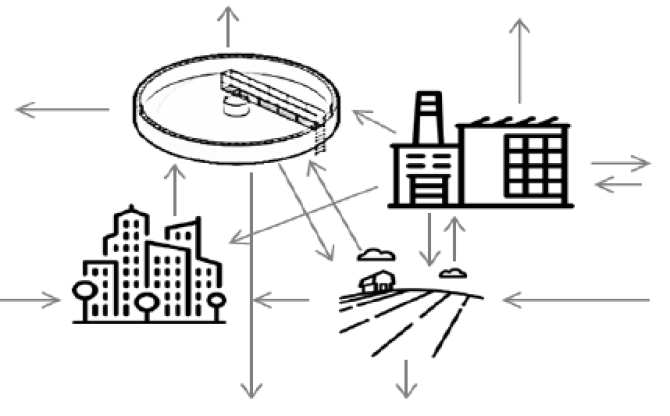
Project
Restoring nutrient cycles in food systems – a regional perspective
Growing population and changing diets have led to increased food demand, and this trend will continue. The resulting intensification of agriculture has unbalanced nutrient use, in turn this causes environmental, economic and social issues. Future nutrient management has to focus on restoring cycles to overcome inefficient use of available nutrients and dependency on non-renewable resources.
Restoring circularity from a regional perspective
Nutrients, such as nitrogen (N) and phosphorus (P) - which are essential to sustain life for living organisms including bacteria, animals and plants, are also detrimental to the environment when they are in excess. Moreover, intensification of food production can be linked to a decline in organic matter (C) of soils used for agricultural activities. Other nutrients, specifically potassium (K), are also important for efficient production of food.
Approach
The model region in this research project, the district Cleves (depicted in grey, with the Netherlands being the Western border), North Rhine-Westphalia, Germany, is a so-called nutrient saturated area. The district is characterized by intensive livestock production, intensive production of cash crops, vegetables and ornamentals. The high nutrient load in the area has resulted in nutrient load in the groundwater above the European Water Framework Directive. Moreover, a decline in soil organic carbon can be observed.

In order to understand the current regional nutrient flows, a substance flow analysis (SFA) will be performed on the 4 most important substances for efficient food production: P, N, K and C. All biomass flows which are (potentially) important for food production will be quantified, therefore multiple sectors will be considered. Understanding of the flows will facilitate determination of points of inefficiency. Moreover, an inventory of available measures applicable in the region to tackle nutrient losses to the environment and to restore nutrient cycles will be performed in order to identify promising measures. Lastly, consequential life cycle assessment (CLCA) as a tool to determine the effect of measures on restoring nutrient cycles will be explored.
